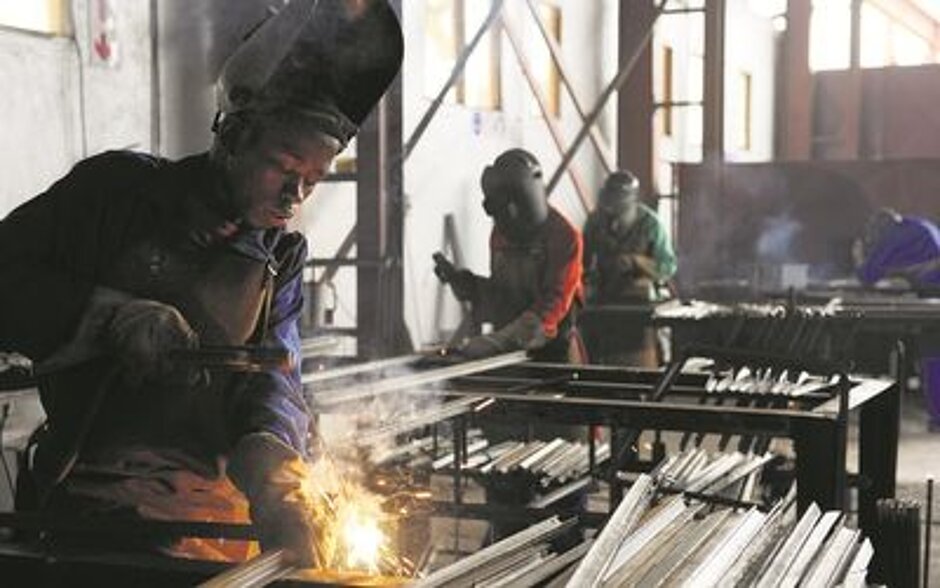
BY <link http: www.bdlive.co.za incoming songezo-zibi-profile _blank external-link-new-window external link in new>SONGEZO ZIBI
ABOUT four years ago during an exercise to understand future demand for electricity, I stumbled upon an interesting statistic: the number of foundries, the places where metal castings are produced, was declining.
The numbers had been declining for three consecutive years at the time. I do not believe this trend has changed given recent manufacturing data from Statistics SA. As foundries use molten metal to make the castings, it follows that they consume electricity intensively. When the number of foundries and their volume of production decline, this suggests that demand and consumption will be lower.
Among the reasons for the decline was the rapid rise of electricity prices once we realised they had been too low all along. Besides, investment in generation capacity was far behind, so we needed to build power stations, to be paid for by consumers such as foundries and households.
If you accept that electricity prices are to continue rising for a long time, then prices have to increase, and costs cut in other areas. Often, it is both.
Electricity is not the only input that costs more than expected. Recently, there was a wage dispute that some metal industry operators are taking to court, pleading poverty. The outcome notwithstanding, they will have to hike wages. Workers are as stretched as the foundries, if not more, so won’t agree to forego a wage increase.
For some, cheap imported steel is the way. They can absorb the Eskom tariff and wage increases. For others there is no choice but to hike prices, which puts them out of business because their customers choose to import from China or Brazil.
Years later, as in this year, large steel companies went crying to the government. They needed tariff protection against cheap, sometimes subsidised steel imports or they would go under. The tariff was given — 10% to be precise. Problem solved, right? No!
The big producers get breathing space, but nothing changes for their customers, or things get worse. Their costs rise because the advantage of imports is gone. So they seek other areas in which to cut costs, such as retrenching, as electricity is not subsidised and won’t be. If they can’t, they have to downscale or shut down.
Back to those Stats SA figures: "Seasonally adjusted manufacturing production decreased by 1.2% in the second quarter of 2015 compared with the first quarter of 2015. Six of the 10 manufacturing divisions reported negative growth rates over this period. The largest contributions to the 1.2% quarter-on-quarter decrease in manufacturing production were made by the following divisions: basic iron and steel, nonferrous metal products, metal products and machinery (-4.4% and contributing -0.8 of a percentage point); and petroleum, chemical products, rubber and plastic products (-3.3% and contributing -0.7 of a percentage point)," the report said.
In the same quarter, 23,000 lost their jobs in manufacturing. Around the time the manufacturing statistics were released, the mining sector was awash with talk of retrenchments and mine closures, so the minister had to convene a meeting of stakeholders to stem the bloodletting. They have listed interventions to help paper over the cracks until the next storm.
Mining is a significant customer of the metals manufacturing sector. By the time we get to final commercial and consumer products, the problems across many sectors are reflected in price and product mix on the shelf.
Consumers may make a "patriotic" purchase by buying a more expensive local product. Fewer people are likely to choose patriotism over survival.
Some of the problematic imports are from our big friend, China. You would think that as they are teaching us how to govern properly and run state capitalism, they’d tell their firms not to sell cheap stuff to a Brics partner, but no. At least China is not the US, which we can accuse of deliberately flooding our market with cheap steel to bring the country to its knees. They’re always trying to do that, according to popular political narrative. The cognitive dissonance brought about by a "friend" doing what evil imperialists do is something we are not ready to deal with.
What does this mean? Things don’t work because we can shoot magic bullets at problems, or ask a geopolitical chum to do us a favour. Instead we learn that "small" manifestations of deep structural problems need a combination of short-term responses and long-term interventions.
This means deep introspection, something we do not particularly like. So we will carry on believing that we can "save" jobs through tariffs, summits, task teams and declarations. The economic death spiral continues.
The fundamental problem in the way of solutions is political leadership and its orientation. Our politicians think "diversification" means doing more of the same under a different name. So we keep the economic structure unchanged instead of investing in the development of new sectors that suit our shaky human capital capacity. That way we stop spending time on an economy we once had and wish we could have again and more on the economy we can and should have.
Source: BDlive.co.za
×


